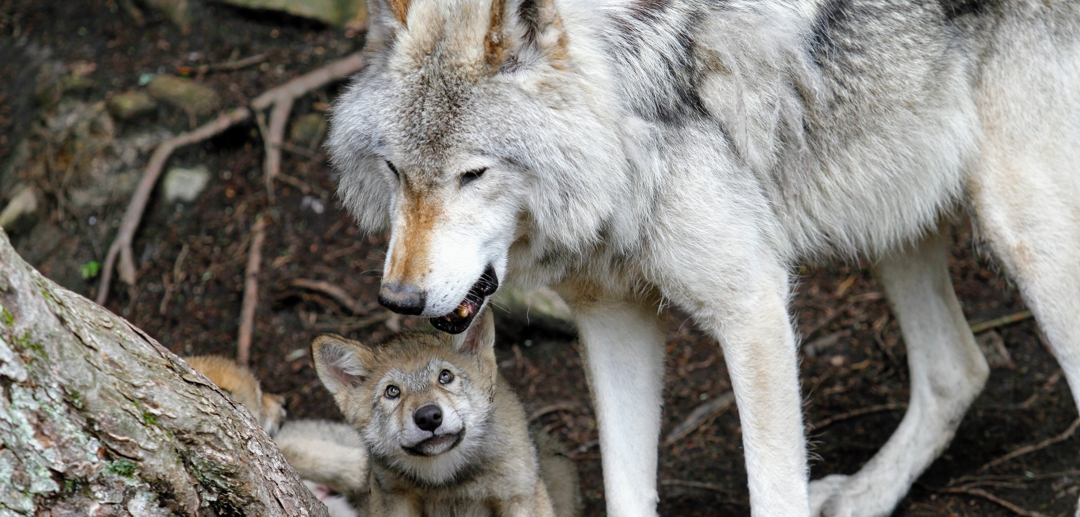Key to Ecosystem Health
Wolves and predators in general play a fundamental role in maintaining ecosystem health. Research strongly supports the contributions of wolves, in particular, to the functioning and stability of the overall landscape. Wolves prey primarily on large ungulates, hoofed mammals such as deer, elk and moose. They live at the top of the food chain and are also a keystone species because they are crucial to keeping the food chain in balance. In other words, wolves, though vilified and loathed by many, help keep nature in balance and help support the health of primary and secondary consumers to keep their populations in check.
All in the Family
But there is also a playful, family centric, loyal side to wolves. They are loyal to their family and their packs. It could be said that wolves’ relationships can be considered better than humans because of their loyalty and once mated, they tend to stay with that partner for life. Wolf pups are adorable, cute, playful and loving. They grow up to be an excellent animal, a combination of their majestic nature and the loyal responsiveness of a dog.
On Top of the World
This National Geographic article takes you to somewhere that is probably unlike any other place on Earth, where wolf behavior could be observed without the impact of human contact – literally on top of the world. The place is Ellesmere Island, high in the Canadian Arctic that is so remote, and in winter so cold, that humans rarely visit. The writer spent 30 hours traveling with these arctic wolves and certainly gives us a new appreciation for these predators of the tundra. Enjoy!
